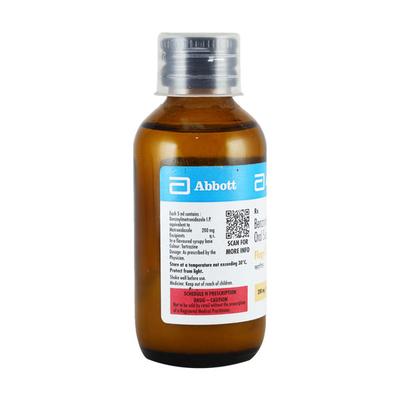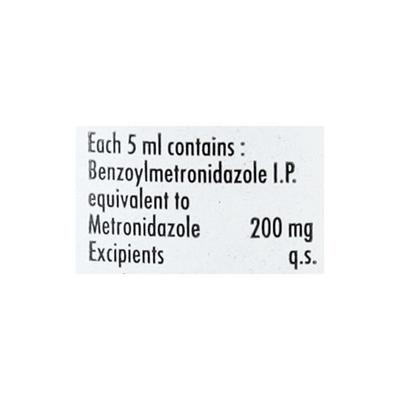Flagyl Suspension 60ml
Flagyl Suspension 60ml
Couldn't load pickup availability
FLAGYL SUSPENSION contains Metronidazole which belongs to the group of medicines called Antiprotozoal drugs. It is used to manage various bacterial and parasitic infections in the body such as amoebiasis, giardiasis (parasitic infection causing severe diarrhea with stomach cramps), trichomonas vaginitis (parasitic infection of the genital tract), infections of the blood, brain, lungs, bones, stomach (Ex. H. pylori infection), pelvis, urinary tract, genital tract (vaginal infections) and gums and teeth (Ex. gingivitis or other dental infections).
It can also be used in the management of infected leg ulcers or pressure sores and helps in the management of post-surgical infections and infections following childbirth. FLAGYL SUSPENSION is suitable for use both in adults and in children including full-term new-borns, toddlers (aged 1 year or above) and in older children (aged 10 years or above).
Take FLAGYL SUSPENSION during or just after meals. It is important to take the full course of the therapy to achieve better control over infection. Failure or skipping doses in between the therapy may not result in adequate infection control. Avoid consumption of alcohol while taking FLAGYL SUSPENSION as it could increase the risk of dizziness and drowsiness.
Before taking FLAGYL SUSPENSION inform your doctor if you have any problems in your liver or kidneys. You must also inform your doctor if you have any problems in your nervous system as a precaution. Do not take this medicine without consulting your doctor if you are pregnant or breastfeeding.
The most common side effects of taking FLAGYL SUSPENSION are lack of appetite, nausea, metallic taste in mouth and stomach cramps. Consult your doctor if any of these side effect troubles you.
Uses Of FLAGYL SUSPENSION
It is used in adults and in children (including full-term new-borns) to manage various bacterial and parasitic infections such as:
Amoebiasis and Giardiasis (parasitic infection causing severe diarrhea with stomach cramps)
Infection of the genital or urinary tract (such as trichomonas vaginitis)
Blood infections
Brain infections (such as meningitis)
Lung infections
Bone and joint infections
Stomach infections (Ex. H. pylori infection)
Infection of the pelvic area
Gum and teeth infection (Ex. gingivitis or other dental infections)
Infected leg ulcers or pressure sores
It also helps in managing post-surgical infections and infections following childbirth.






